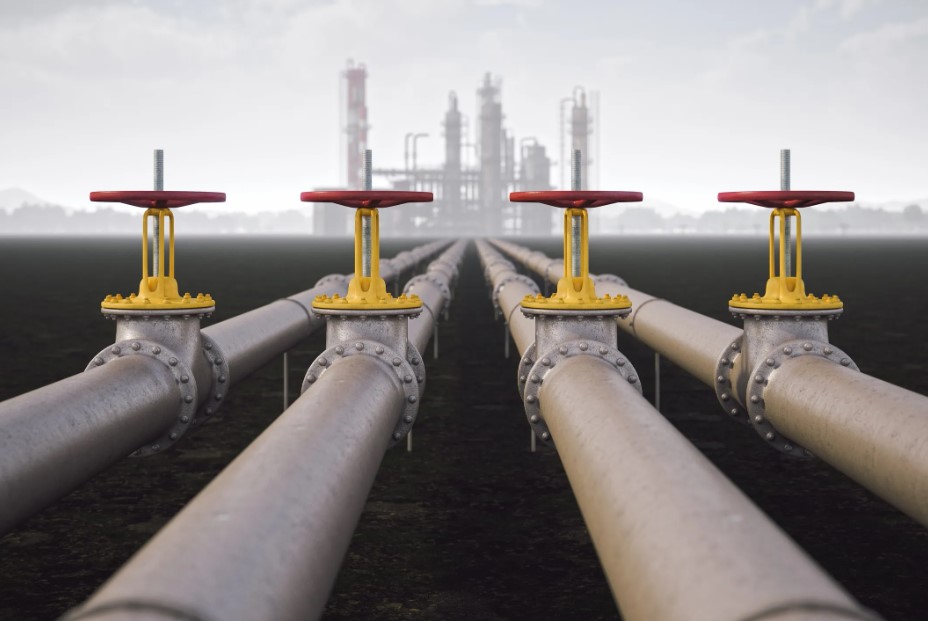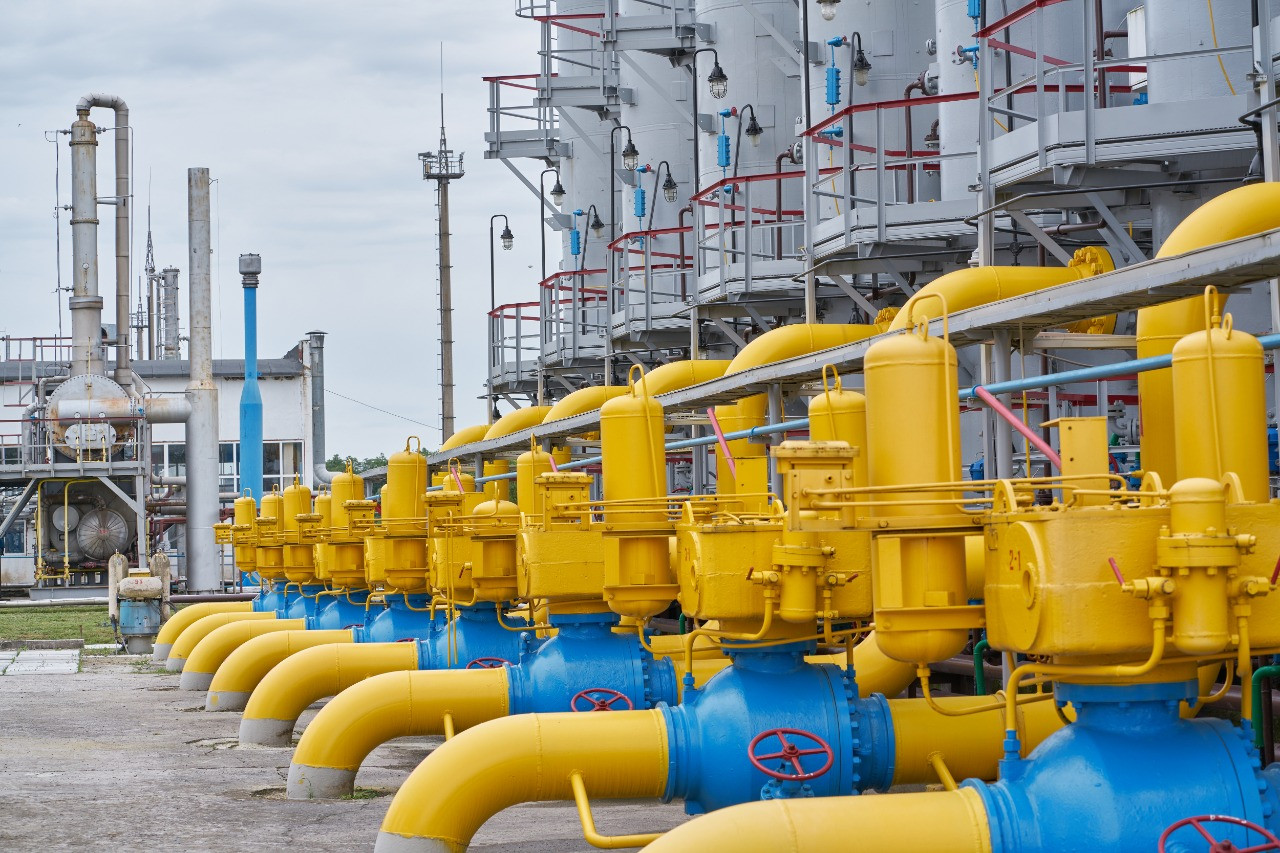The transit of Azerbaijani gas through Ukraine to Europe will not protect the Ukrainian gas transportation system from Russian shelling, believes Serhiy Makohon, the former CEO of the Gas Transmission System Operator of Ukraine from 2019 to 2022.
"There is an argument that the Russians will not hit the gas transmission system (GTS) of Ukraine as long as there is transit of Azerbaijani gas. What interest do they have in not hitting it if it will actually be Azerbaijani gas? The only argument is that there will be Russian gas, even under the guise of Azerbaijani gas," he said during a press conference at the Media Center of Ukraine in Kyiv on Thursday.
At the same time, he noted that even under such conditions, the Russians will not stop their intentions to destroy Ukraine's energy sector, particularly the gas sector, since the transit pipeline is only part of the extensive and powerful GTS of Ukraine: "But we have no guarantees that while maintaining transit, the Russians will not hit the GTS."
"They have already spent $15 billion to damage our electricity infrastructure, and there have been six waves of missile attacks on the GTS in western Ukraine. Yes, there have not been attacks on the GTS as there have been on thermal power plants, but that does not mean they care about it—they simply lack missiles.
He pointed out that even with significant damage, the GTS is capable of performing its functions, for which various response scenarios have been developed.
"The transit pipe is not related to the transportation of gas, for example, to Kyiv. It is 500 km away from Odesa, where gas can be supplied from Moldova, among other places. It does not concern Lviv. This is one of dozens of pipelines in Ukraine (...) If there is significant damage to the gas infrastructure, it is theoretically possible that there will be problems with gas supply. However, for example, Kyiv has what is called a Kyiv gas ring. This means there is no possibility to cut off one place and leave it without gas. It comes through six or seven pipelines to Kyiv. Yes, gradual consumption reduction is possible—first industry, then households,” described the situation the former head of the GTS of Ukraine.
According to him, continuing the transit of gas from the Russian Federation even under the guise of Azerbaijani gas would make sense only if Ukraine imposed certain conditions, such as the return of the Russian-occupied Zaporizhzhia Nuclear Power Plant and guarantees not to strike energy networks.
"And if we are now being offered transit of supposedly Azerbaijani gas, while everyone understands that it is actually Russian gas, then it seems to me that this is just an agreement that will allow the Russians to continue earning $5 billion a year, which they will use to strengthen their armament," emphasized Makohon.
He stressed that to replace the 14 billion cubic meters currently exported from the Russian Federation to Europe through Ukraine, Azerbaijan would need to double its gas export volumes, which it currently does not have the capacity to do.
"Overall, Azerbaijan supplies about 13 billion cubic meters of gas to Europe, and it has no free resources at all to replace the 14 billion cubic meters currently going through Ukraine. Therefore, we are talking about a so-called commercial swap, where it will essentially be the same molecule of Russian gas produced in Urengoy, but commercially it will become Azerbaijani, and on the documents, they will show us that this is Azerbaijani gas, but in reality, it will be Russian," explained the former head of the GTS of Ukraine.
Makohon also believes that Europe is by no means interested in continuing transit from the Russian Federation, as it intends to completely rid itself of Russian gas by 2027, the share of which has already decreased from 45% to 15% in recent years, while Ukrainian transit accounts for only 5% of total European imports.
As reported, Ukraine is negotiating the supply of natural gas from Azerbaijan to the European Union, aiming to maintain its role as a transit country and help its western neighbors ensure energy security, President Volodymyr Zelensky said in an interview with Bloomberg TV this summer.
He clarified that members of the Cabinet of Ministers are dealing with the potential transit of Azerbaijani gas to the EU, indicating that the agreement to replace Russian gas with Azerbaijani supplies is "one of the proposals" currently under discussion. He also stated that Ukraine does not want to continue the gas contract with the Russian Federation.
According to operational data from the Azerbaijani Ministry of Energy, from January to July 2024, 14.7 billion cubic meters of gas were exported, which is 5.7% higher than the figure for the same period in 2023. During the reporting period, 7.5 billion cubic meters of Azerbaijani gas were supplied to Europe, or 51% of total exports, while 5.8 billion cubic meters (39.5% of total exports) went to Turkey, and 1.4 billion cubic meters (9.5% of total exports) went to Georgia. Additionally, 3.3 billion cubic meters of gas were transported to Turkey through the TANAP pipeline during the reporting period.
By the end of summer, contracts for the purchase of Azerbaijani gas are held by Italy, Greece, Bulgaria, Romania, Hungary, Serbia, Slovenia, Turkey, and Georgia.
In 2023, Azerbaijan exported 23.8 billion cubic meters of gas (a 5.3% increase), with supplies to Europe amounting to 11.8 billion cubic meters (a 3.5% increase).
In 2024, gas exports from Azerbaijan are projected to reach 25 billion cubic meters, with 13 billion cubic meters designated for supplies to Europe.
The contract between Naftogaz of Ukraine and Gazprom for the organization of transportation, the transportation agreement between the Naftogaz and the Gas Transmission System Operator of Ukraine, as well as the inter-operator agreement between the GTSOU and Gazprom, was signed on December 30, 2019. The contract provides for transit in 2021-2024 for 40 billion cubic meters of gas per year.
The head of Naftogaz, Oleksiy Chernyshov, stated that the company does not intend to extend the transit contract after its expiration on December 31, 2024.
Results of a stress test conducted with the assistance of USAID showed that the GTS and underground gas storage facilities of Ukraine are ready to operate under conditions of zero transit.
Transit of Russian gas through Ukraine's gas transmission system (GTS) in 2023 decreased by 28.4% (by 5.813 billion cubic meters) compared to 2022, amounting to 14.647 billion cubic meters.





















